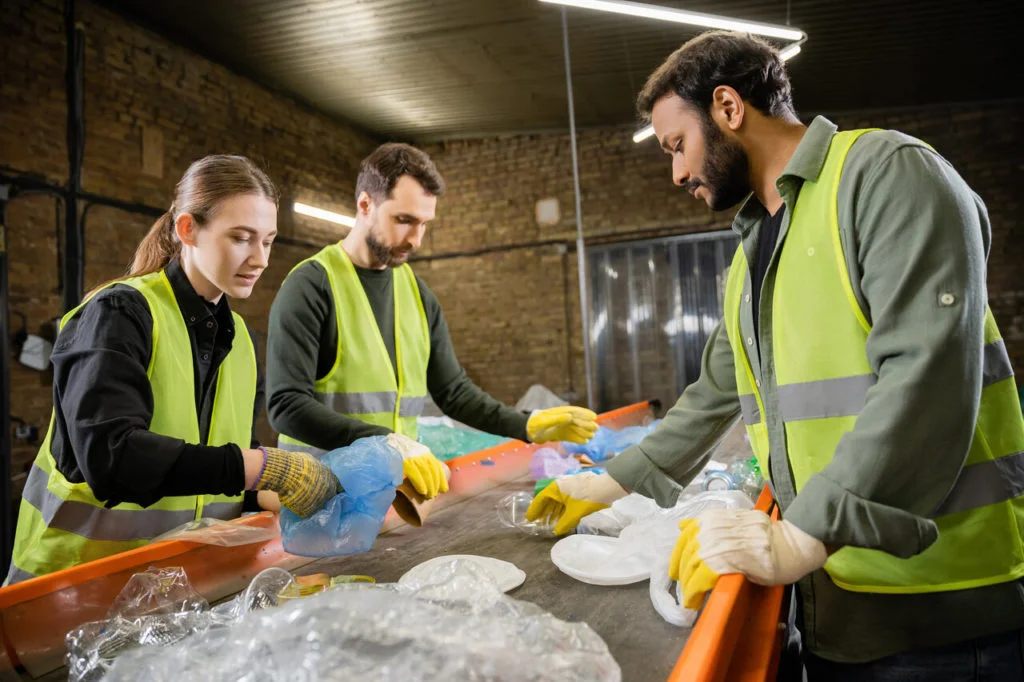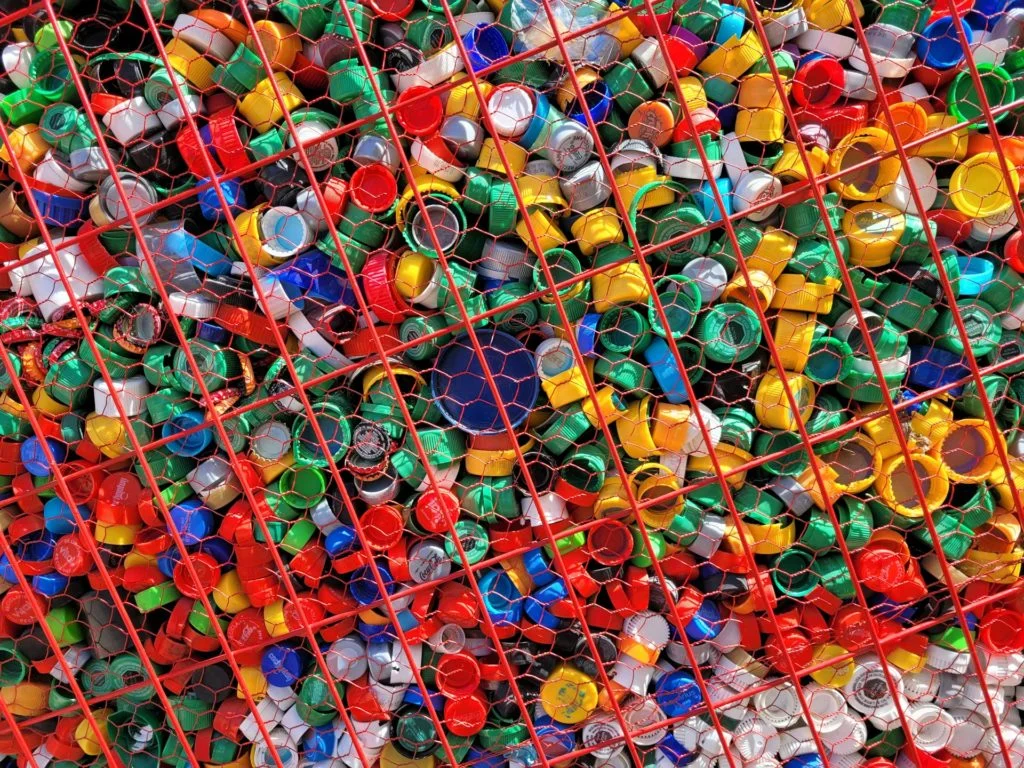The automotive industry is notorious for generating large amounts of waste plastic materials as a byproduct of their manufacturing processes. As environmental concerns and regulations continue to pressure the industry to adopt more sustainable practices, finding innovative and efficient ways to manage waste plastic materials is paramount. Among the various waste management solutions, plastic reprocessing stands out as an approach that can not only help tackle waste generation but also move the automotive industry towards a greener and more sustainable future.
Pulse Plastics, a pioneering UK-based independent specialist plastic solution provider, is a staunch advocate of the transformative potential of plastic reprocessing, particularly within the automotive industry. The core premise of plastic reprocessing involves taking waste plastic materials and converting them into high-quality raw materials that can be reintroduced into the manufacturing process, thus creating a closed-loop system.
Unlike traditional recycling methods that can degrade the quality of plastic materials, plastic reprocessing maintains its functionality and performance. This ensures that the reprocessed plastics are suitable for reintegrating into the demanding automotive manufacturing processes, ultimately resulting in more efficient production and reduced waste output.
In this article, we will explore the ways in which plastic reprocessing can be applied to the automotive manufacturing sector, specifically examining how it contributes to more sustainable operations, waste reduction, and efficient resource management. We will provide insights into the benefits and challenges of implementing plastic reprocessing in the automotive industry and discuss strategies for successfully transitioning to a closed-loop system. Join us on this journey as we uncover how plastic reprocessing can revolutionise waste management and sustainability in the automotive industry.
1. Overview: The Role of Plastic in the Automotive Manufacturing Process
The automotive industry utilises various plastic materials in different components of vehicle production. From intricate electronic components to lightweight body parts and interior features, plastics offer flexibility, durability, and lighter weight, making them indispensable to modern automotive manufacturing. However, the versatility of plastics also generates a considerable amount of waste during the manufacturing process, necessitating the need for efficient waste management and recycling processes to reduce environmental impact.
2. Plastic Reprocessing: Paving the Way for Greener Manufacturing
Plastic reprocessing offers a sustainable solution for handling waste plastics that goes above and beyond traditional recycling techniques. Companies like Pulse Plastics specialise in converting waste plastic materials into reusable, high-quality raw materials for automotive manufacturing, facilitating the creation of a closed-loop system. Key benefits of this approach include:
- Enhanced Sustainability: Plastic reprocessing minimises the need for extracting and consuming new raw materials, lowering the environmental impact associated with raw material production. Additionally, the process reduces waste production by reintegrating the previously discarded plastics into the manufacturing process.
- Improved Operational Efficiency: The closed loop system enabled by plastic reprocessing ensures a consistent supply of high-quality plastic materials, stemming from the fact that reprocessed plastics retain their performance standards. This consistency enables manufacturers to maintain efficient production processes and streamline resource management.
- Cost-Effectiveness: By utilising reprocessed plastics, automotive manufacturers can significantly reduce material costs and benefit from reduced waste disposal expenses, positively impacting their bottom line.
3. Implementing Plastic Reprocessing and Closed Loop Systems in the Automotive Industry
In cooperation with innovative companies like Pulse Plastics, automotive manufacturers can adopt plastic reprocessing as a part of their waste management strategy by:
- Identifying Waste Sources: Determine the specific areas within the manufacturing process where waste plastic materials are generated, allowing manufacturers to pinpoint opportunities for improvement and integrate plastic reprocessing more effectively.
- Collaborating with Expert Providers: Partnering with trusted plastic reprocessing companies, such as Pulse Plastics, signals a commitment to sustainable automotive manufacturing and ensures that the reprocessed materials will meet the high-performance standards required by the industry.
- Streamlining Waste Collection and Storage: Developing a robust waste collection and storage system guarantees that the waste plastic materials are efficiently transported to the reprocessing facilities, where they can be transformed into usable raw materials and reintegrated into the manufacturing process.
- Promoting a Culture of Sustainability: Encouraging a company-wide shift towards sustainable manufacturing practices and waste management, reinforcing the adoption of greener processes like plastic reprocessing and fostering an environmentally responsible ethos.
4. Challenges and Opportunities
While the adoption of plastic reprocessing holds enormous potential for the automotive industry, a few challenges must be acknowledged and addressed:
- Quality Control: Ensuring that the reprocessed plastics are of the highest quality is vital for the automotive manufacturing process. Manufacturers should work closely with reliable plastic reprocessing partners such as Pulse Plastics to guarantee the quality and performance of the reprocessed materials.
- Technology Investment: Integrating plastic reprocessing might require companies to invest in new technologies and infrastructure. Collaborative efforts with plastic reprocessing partners can expedite this process and guarantee successful implementation.
- Perception and Awareness: Promoting plastic reprocessing as an innovative, sustainable solution rather than a mere recycling alternative is crucial for gaining traction and encouraging widespread adoption.
Working together with plastic reprocessing experts, automotive manufacturers can confront these challenges and champion a greener future for the industry.
Conclusion
Plastic reprocessing and the adoption of closed-loop systems present the automotive industry with the opportunity to drive more sustainable manufacturing processes and dramatically improve waste management practices. The collaboration between automotive manufacturers and plastic reprocessing companies like Pulse Plastics is pivotal in redefining waste management strategies and lessening the sector’s environmental impact.
As the automotive industry moves towards environmentally responsible approaches, companies must embrace reprocessing plastic as an integral part of their waste management and sustainability agenda. By doing so, they can benefit from reduced waste output, enhanced operational efficiency, and cost savings, thereby contributing to a more sustainable and prosperous future for the industry as a whole.


